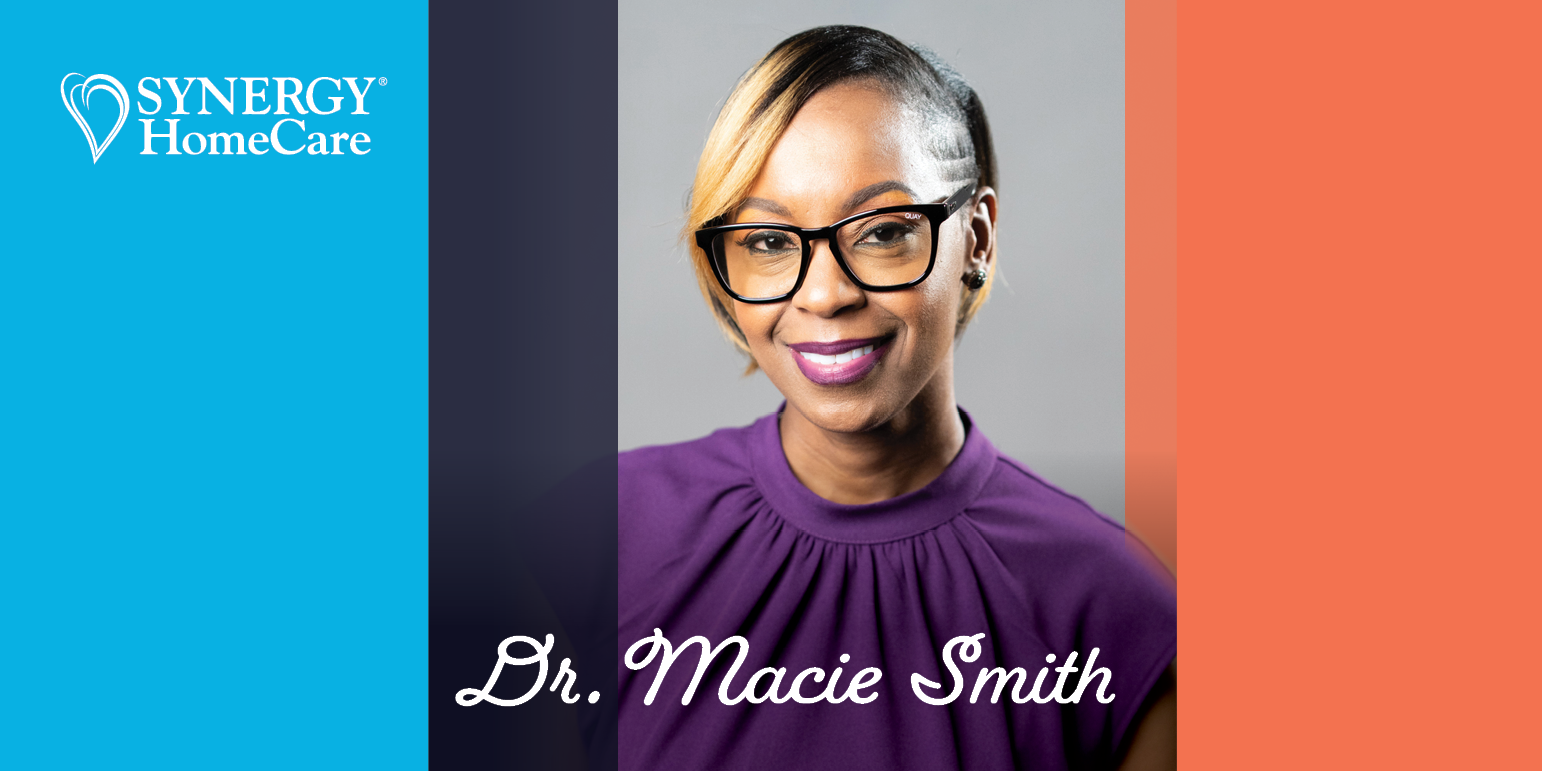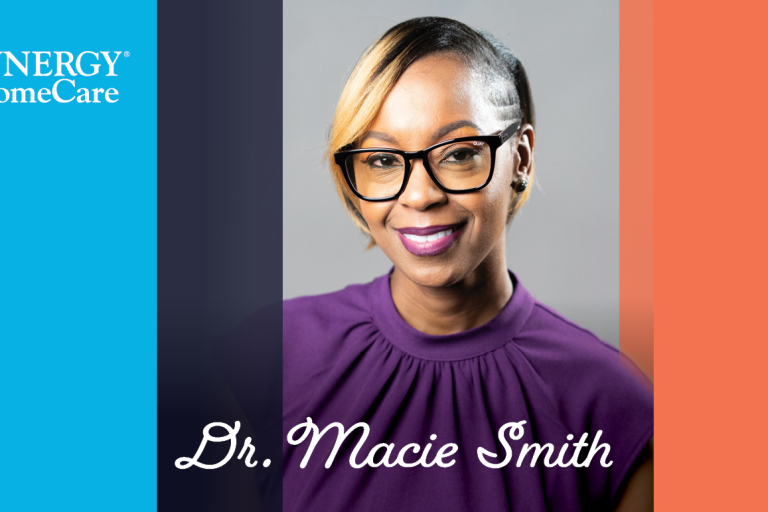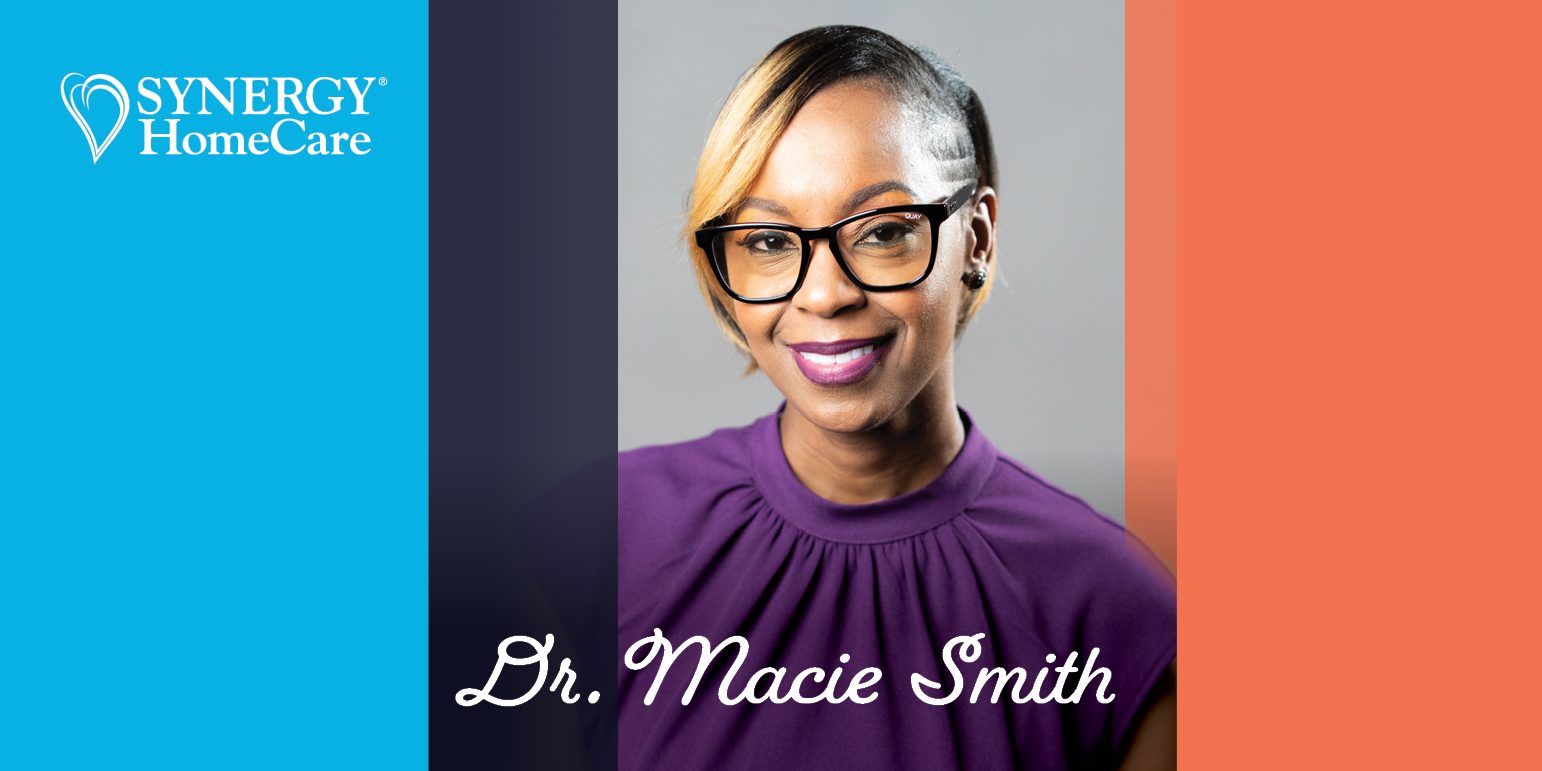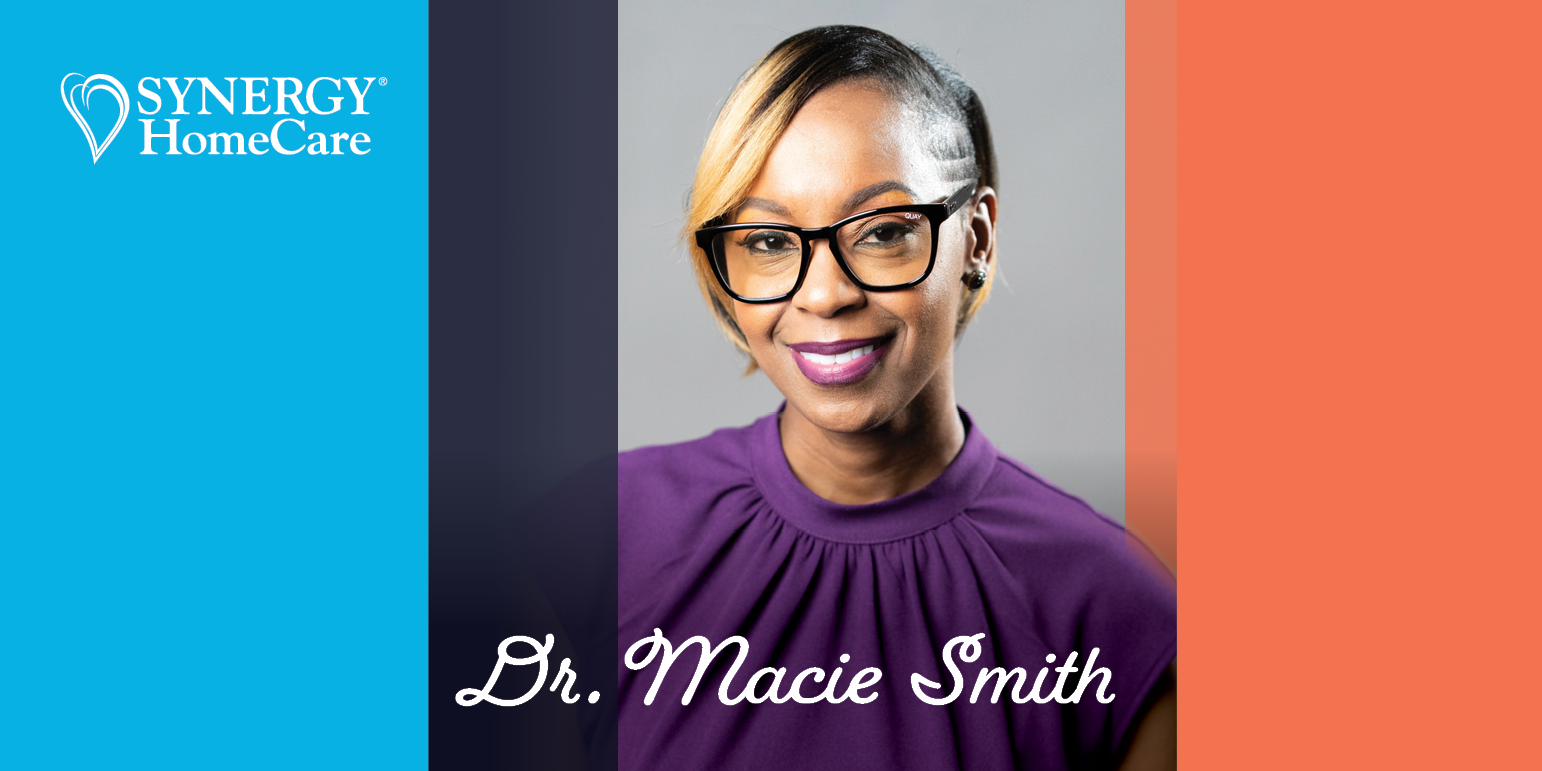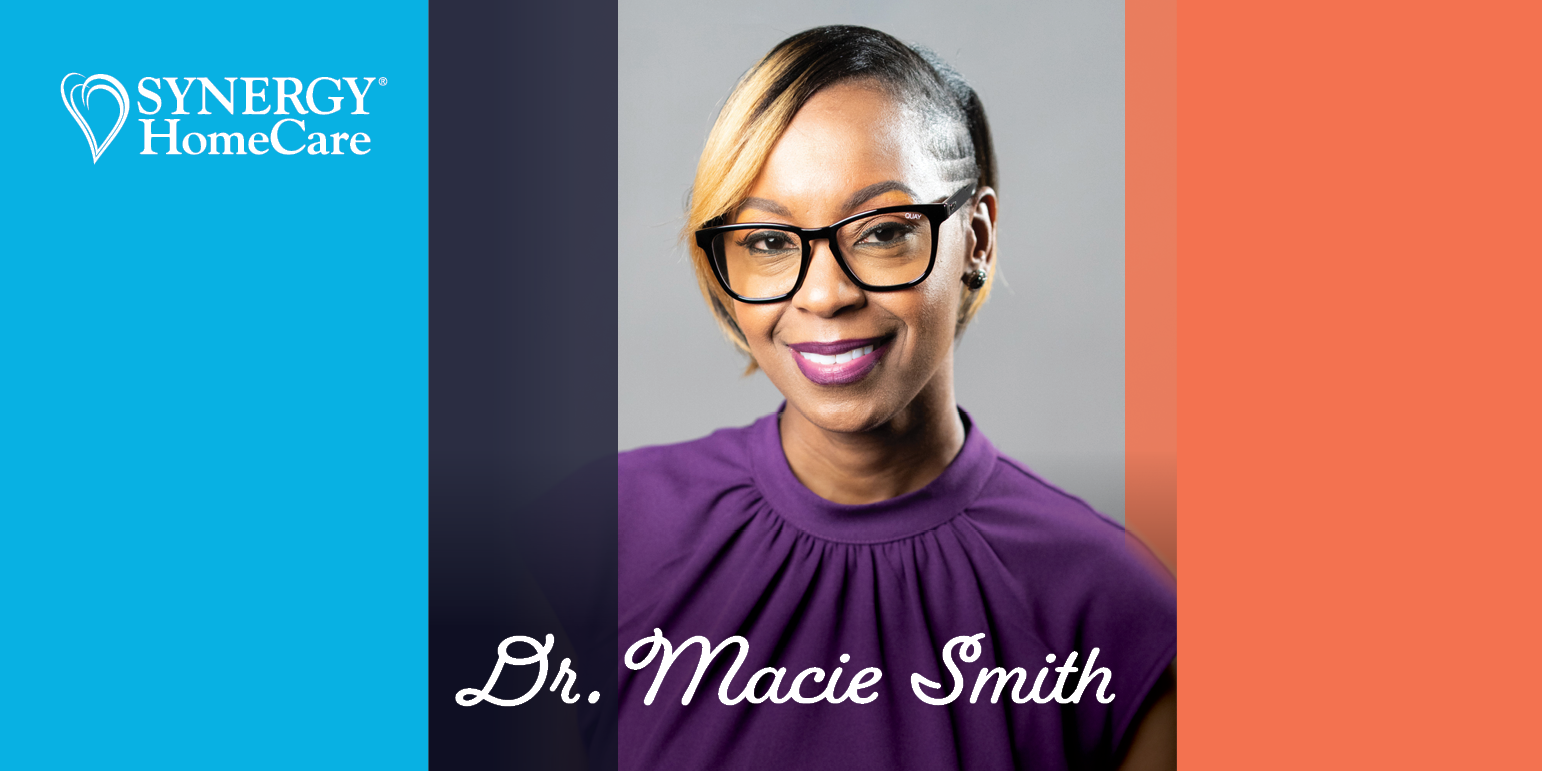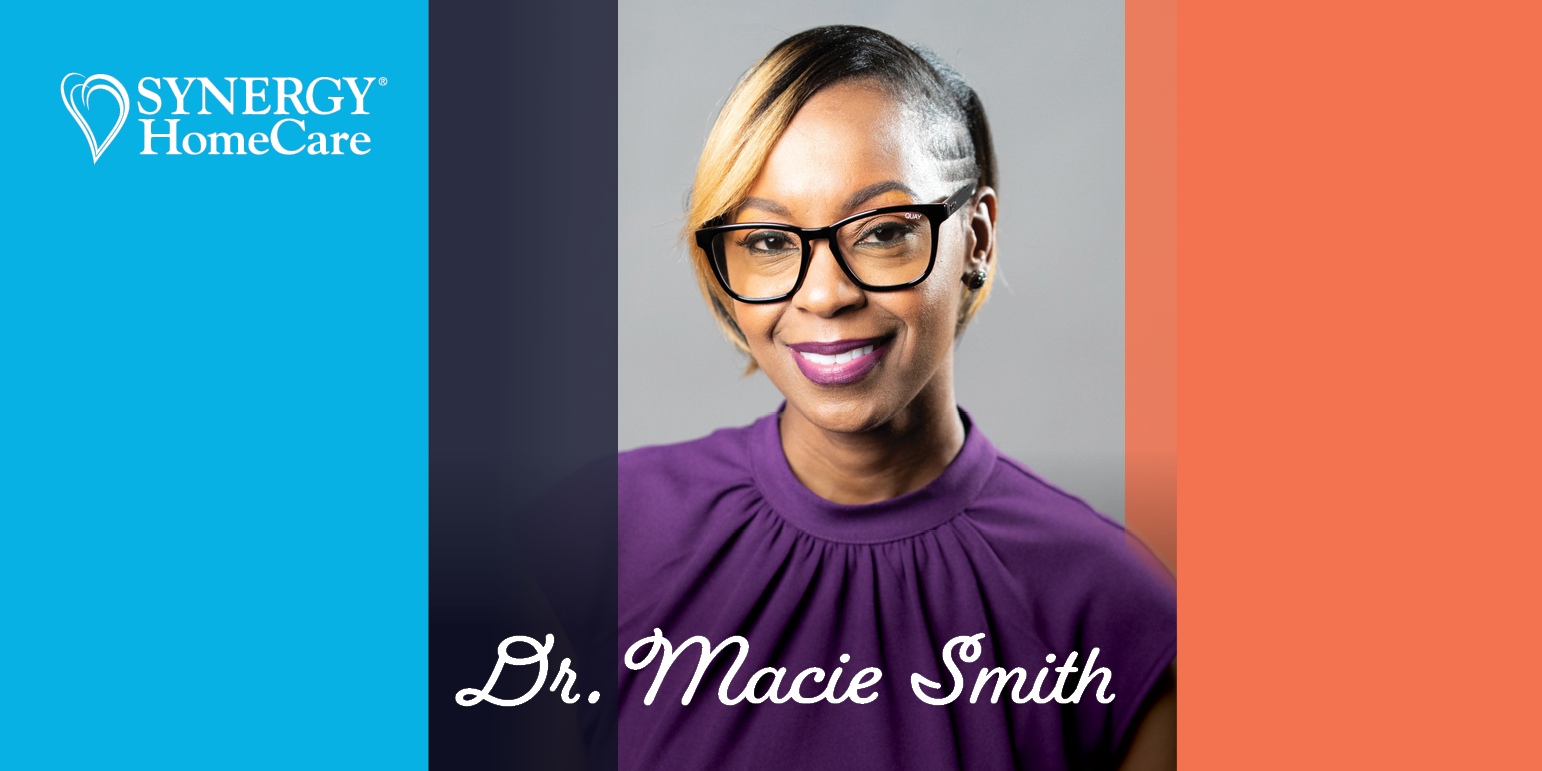By Dr. Macie Smith
You’ve noticed your parent or loved one is experiencing more frequent memory lapses, increased repetition and forgetfulness of new or routine information. It’s time to share those concerns with a health care professional. Aging expert Dr. Macie Smith walks you through what to expect and how to prepare for a professional consultation.
If you’ve noticed your parent or loved one is experiencing some of the warning signs of dementia, you’ll want to talk with them about seeing a health care provider. Rather than raise alarm, it’s better to casually ease into the conversation. Suggest that it’s a good time for your loved one to get an annual physical. You can even offer to make the appointment. If they don’t take you up on that offer, wait a week then ask if the appointment has been made. If it hasn’t, go ahead and make the appointment on their behalf.
Get ready for the visit
Whether you made the appointment or your loved one made it themselves, it’s a good idea to call the doctor’s office prior to the appointment to let them know the reason for the visit. It is possible your loved one won’t disclose anything they have noticed about their memory loss or cognitive decline.
If you live nearby, offer to drive. If you don’t live nearby, arrange to be in town so you can go along to the visit, but try to make the visit under the guise of normal circumstances such as a vacation, holiday or social visit so as not to raise alarm.
Be empathetic
It’s helpful to not bring undue attention to your loved one’s forgetful behaviors. They are likely aware on some level of their decline, and they are likely already scared and stressed about this development. Therefore, remain empathetic and try not to focus on it until a formal diagnosis has been made.
Your role at the appointment
On the day of the consultation, help your parent or loved one fill out the forms while in the waiting room. Ask them to include you on the HIPAA form as someone with whom their medical information can be shared. This will facilitate your support and advocacy and allow you to be a care partner.
Ideally, accompany your loved one in the exam room. If your parent declines to have you present during the doctor visit, follow up with the doctor after the appointment. This is why calling ahead is so important–it allows the doctor to guide the conversation to where it needs to go.
What will the doctor look for?
There are many medical causes of dementia that are treatable, such as a urinary tract infection, a vitamin B12 deficiency, a thyroid imbalance, diabetes, medication interaction or side effect, depression or even a traumatic event like a death in the family.
Should the doctor suspect that your loved one has dementia, they may refer them to a neurologist for confirmation of that diagnosis. You can also request a referral to a neurologist. Dementia is marked by a persistent, disabling decline in two or more intellectual abilities such as memory, language, judgment, and abstract thinking. This decline may be detected through brain scans and based on what the scans show, the cause of the dementia is often able to be determined.
Alzheimer’s is the main cause of dementia, but there are other causes such as vascular dementia, which may occur in people who have long-term high blood pressure, severe hardening of the arteries or several small strokes. Strokes are the second most common cause of dementia. Dementia is also common in people with Parkinson’s disease.
A neurologist should be able to provide formal validation of the type of dementia your loved one might have. Be sure to ask for information and resources to help you gain a better understanding of the disease and its progression.
Now it’s time to take a breath. You helped your loved one get an early jump on a progressive disease. While the diagnosis may be scary, keeping a positive attitude and leading with compassion will allow you to continue in your role as supporter, advocate and care partner.
Dr. Macie P. Smith is a licensed gerontology social worker who is focused on helping families support their aging loved ones through long-term care. Specifically, Dr. Smith educates caregivers on how to care for seniors with dementia. She is an advocate for specialized care and assists others in finding a way to provide a better quality of life for individuals with Alzheimer’s or dementia. Dr. Smith has dedicated over 22 years of her life working in gerontology and assisting families in finding personalized solutions for dementia care.
__________
Whether your loved one has been diagnosed with Alzheimer’s Disease or another form of dementia, understanding the disease and identifying the right family caregiver resources and support can leave you feeling overwhelmed and stressed.
Rest assured, SYNERGY HomeCare is here to help you navigate through uncharted waters and create peace of mind in caring for your loved one experiencing dementia or memory loss.
Download the FREE SYNERGY HomeCare Memory Care Guide, visit the “Resources” section here.
Speak with a Memory Care specialist today
877-432-2692
